Blog
How to Select the Best CCTV Camera System for Your Business Security Needs
In today's increasingly security-conscious environment, selecting the right CCTV camera system for your business is more crucial than ever. According to a report by MarketsandMarkets, the global video surveillance market is expected to grow from $42.3 billion in 2020 to $74.6 billion by 2025, highlighting the escalating importance of effective surveillance solutions for protecting assets and ensuring safety. As businesses face a myriad of security challenges, such as theft, vandalism, and workplace violence, understanding the various types of CCTV camera systems available can significantly enhance security measures. However, the myriad options can also lead to confusion, making it essential to assess specific security needs to avoid common pitfalls associated with improper selection. In this blog, we will explore the critical problems that can arise when choosing CCTV camera systems, ensuring that you make an informed decision that safeguards your business effectively.

Understanding Your Business Security Requirements
When selecting a CCTV camera system for your business, understanding your specific security requirements is crucial. Each business has unique vulnerabilities and assets that need protection, which makes a one-size-fits-all approach ineffective. Start by assessing the layout of your premises, identifying key areas that require surveillance, such as entrances, exits, parking lots, and sensitive internal locations. Additionally, consider the specific threats your business may face, such as theft, vandalism, or unauthorized access, to tailor your security strategy accordingly.
Another important aspect is the resolution and functionality of the cameras themselves. High-resolution cameras can capture clear details, which is essential for evidentiary purposes. Depending on your security needs, you might want to explore features such as night vision, motion detection, or remote access capabilities. It’s also wise to evaluate the recording and storage solutions to ensure you can maintain footage for a duration that meets regulatory compliance or your internal policies. By clearly defining your security needs, you can effectively select a CCTV camera system that not only enhances your business’s security but also provides peace of mind.

Types of CCTV Camera Systems and Their Features
When it comes to enhancing security in businesses, choosing the right
CCTV camera system is crucial. There are several types of
CCTV systems, each designed to serve specific needs. Analog cameras, for instance, are typically more
affordable but offer lower resolution compared to digital systems. According to a recent report by
Markets and Markets, the global video surveillance market is
projected to reach $85 billion by 2025, indicating the increasing reliance on advanced
surveillance technology.
 IP cameras have gained popularity due to their high-definition video quality and remote
viewing capabilities. With features such as motion detection and night vision, IP cameras provide
businesses with a comprehensive security solution. A study by IHS Markit
highlighted that the adoption of IP camera systems is expected to surpass 70% of the total
market share by 2024, stressing their importance in modern surveillance strategies.
Additionally, wireless CCTV systems are becoming a preferred choice for many businesses due to their
easy installation and scalability. By understanding the various options and their features, businesses
can make informed decisions tailored to their specific security needs.
IP cameras have gained popularity due to their high-definition video quality and remote
viewing capabilities. With features such as motion detection and night vision, IP cameras provide
businesses with a comprehensive security solution. A study by IHS Markit
highlighted that the adoption of IP camera systems is expected to surpass 70% of the total
market share by 2024, stressing their importance in modern surveillance strategies.
Additionally, wireless CCTV systems are becoming a preferred choice for many businesses due to their
easy installation and scalability. By understanding the various options and their features, businesses
can make informed decisions tailored to their specific security needs.
Key Factors to Consider When Choosing CCTV Cameras
When it comes to selecting the best CCTV camera system for your business security needs, several key factors must be considered. The type of camera sensor is pivotal—options include CMOS, CCD, and full-frame sensors, each offering different performance levels regarding image quality in various lighting conditions. Additionally, the type of lens can significantly impact the surveillance capability; variable lens options allow for versatility in monitoring, making them ideal for dynamic business environments.
Another important factor is video resolution. As technologies advance, systems offering 4K or 1080p resolutions are becoming increasingly popular, providing clearer images for effective surveillance. Furthermore, the durability of the camera, including weather resistance (IP66 rating) and other protective features, is essential for outdoor installations. As markets evolve, a growing trend is also seen in the adoption of solar-powered wireless cameras, indicating a shift towards sustainable security solutions that continue to function during power outages or prohibitive installation scenarios. By prioritizing these aspects, businesses can make informed choices tailored to their unique security requirements.
Installation and Maintenance Tips for Optimal Performance
When selecting a CCTV camera system for your business, installation and maintenance are crucial for ensuring optimal performance. According to a report by the Security Industry Association, 54% of businesses experience security breaches due to insufficient surveillance systems. This emphasizes the need for a comprehensive setup that maximizes coverage and minimizes blind spots. Proper installation involves strategically placing cameras at entry and exit points, common areas, and potential blind spots to create a thorough surveillance network.
Regular maintenance is equally vital. A study by the National Institute of Standards and Technology found that failure to regularly service surveillance equipment can lead to system failures in over 30% of cases. Routine checks should include cleaning camera lenses, testing recording features, and ensuring that software is up-to-date to guard against cyber threats. By implementing these installation and maintenance tips, businesses can enhance their security protocols, often resulting in lower insurance premiums and a more vigilant operational environment.
Budgeting for Your CCTV Security System: What You Need to Know
When it comes to budgeting for a CCTV security system, understanding your needs and options is crucial. Industry reports indicate that small businesses can expect to spend anywhere from $500 to $2,000 on a complete CCTV system, depending on the number of cameras and features required. The key is to balance cost with quality to ensure you’re getting a system that effectively safeguards your property without breaking the bank.
**Tips:** Consider starting with a basic system that includes essential features like HD video quality and night vision, and then expand as your budget allows. Research customer reviews and conduct thorough comparisons to identify systems that offer reliable performance at a lower price point.
Additionally, many manufacturers now offer mid-range options that deliver high-quality footage and advanced features without a premium price tag. According to recent evaluations, investing in cameras that support cloud storage can also provide greater flexibility and security for your recordings over traditional methods. With the right approach, you can establish a solid security foundation while managing your budget effectively.
Budgeting for Your CCTV Security System
Related Posts
-
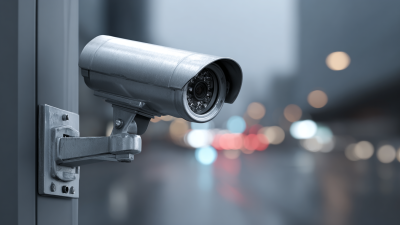
Exploring the Features and Applications of the Top CCTV Alarm Systems for Global Buyers
-

Top 10 CCTV Security Camera Manufacturers from China at the 137th Canton Fair
-
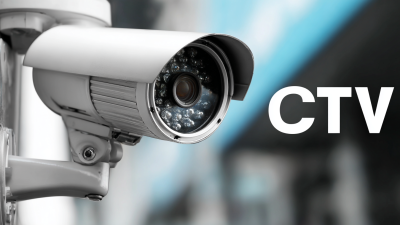
Ultimate Guide to Choosing the Best CCTV Camera System for Your Home and Business
-
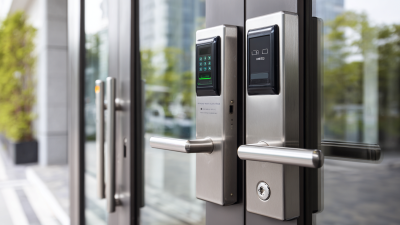
Global Reach of China's Leading Door Access Control Systems: Setting the Standard Worldwide
-
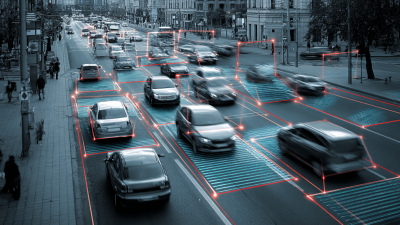
Evaluating Card Access Control Systems for Enhanced Security Efficiency and Cost Effectiveness
-
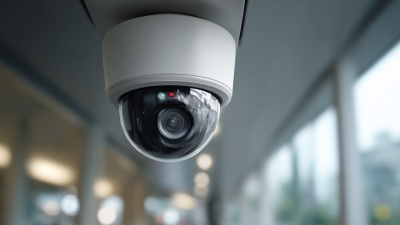
Ultimate Guide to Choosing the Best CCTV Camera for Your Home Security Needs
